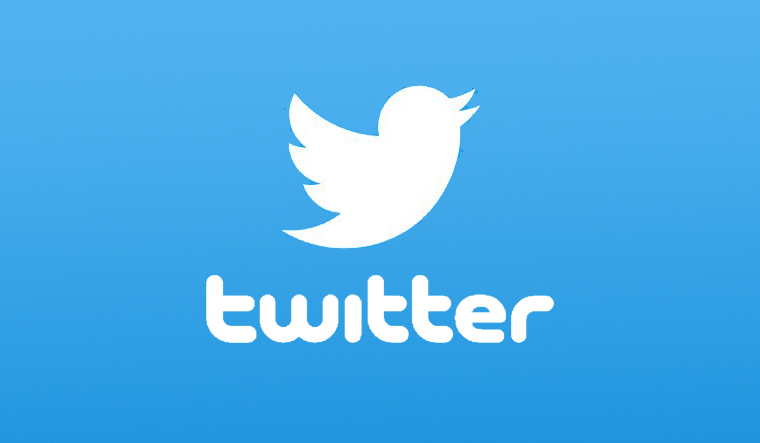Lessons from the ban on Twitter
Last week, the federal government lifted the ban on Twitter after 222 days. In lifting the ban, the government enumerated the gains of its deal with the tech giant to include Twitter acquiescing to open a local office in Nigeria, address concerns over tax payment, and appointing a country representative who, going forward, will be […]

Twitter logo
Last week, the federal government lifted the ban on Twitter after 222 days. In lifting the ban, the government enumerated the gains of its deal with the tech giant to include Twitter acquiescing to open a local office in Nigeria, address concerns over tax payment, and appointing a country representative who, going forward, will be on hand to engage with the Nigerian government when required.
In a statement issued by the National Information Technology Development Agency (NITDA), the government said, among other things, that “Twitter has agreed to act with a respectful acknowledgement of Nigerian laws and the national culture and history on which such legislation has been built and work with the FGN and the broader industry to develop code of conduct in line with global best practices, applicable in almost all developed countries.”
On its part, Twitter reacted to the lifting of the ban in a tweet by saying: “We are pleased that Twitter has been restored for everyone in Nigeria… Our mission in Nigeria and around the world is to serve the public conversation.” It added that “We are deeply committed to Nigeria, where Twitter is used by people for commerce, cultural engagement, and civic participation”. Since then, Twitter is now freely accessible in the country and this whole saga appears to now have a happy ending.
We believe, however, that there are important lessons both for the federal government and Twitter, and indeed Nigerians and other social media giants, to learn from it. For the Nigerian government, the first lesson is that the present outcome could have been achieved even without the ban on Twitter. The government’s reasons for the ban that Twitter was being used “for activities that are capable of undermining Nigeria’s corporate existence”, were certainly significant, then and now, but that ought to have been weighed against possible economic costs of the ban. After all economic interest is also national security interest.
According to the internet watchdog Netblocks, Nigeria lost an estimated $1.5 billion (about N546.5 billion) during the seven months the ban was in effect. Moreover, the outfits that suffered most are start-ups who need social media to create awareness about their brands. While it is good that the federal government got Twitter to set up an office in Nigeria, to pay tax and adhere to our extant laws, all of these have come at the expense of our local economy. These huge economic costs could have been avoided had the federal government acted more soberly and more competently. All that the government needed to have done was to compel Twitter, through evidence, persuasion and negotiation, to remove the tweets or the accounts of those who threaten our already fragile national security.
That is in fact the second lesson for the government. The Nigerian government must upgrade its level of competence in dealing with foreign governments and multinational companies, rather than acting brashly in ways that end up hurting the overall national interest. In Europe, America, Asia and some African countries, governments engage technology giants in diverse ways to ensure compliance with local tax and communication policies. Technology companies that contravene such rules have had to pay heavy fines.
For instance, early last month, the Italian anti-trust watchdog slammed a fine of 1.13 billion euros ($1.28 billion) on Amazon for alleged abuse of market dominance. Since Amazon has said it will appeal the case, the fine may not be the last word. But in general, global regulatory scrutiny of tech giants has been increasing after a string of scandals over privacy and misinformation, as well as complaints of abuse of market power by local businesses. Nigeria can learn from this.
In this wise, the role played by NITDA and its Director-General Kashifu Inuwa Abdullahi during the crisis should be made permanent of the agency and expanded to other social media companies operating in the country. Beyond that, NITDA, the Nigeria Communications Commission (NCC) and others need to encourage the setting up and funding of independent internet watchdogs, think-tanks and ombudsmen that could effectively play the role of mediators in similar situations. Such independent institutions will also constantly monitor the operations of social media companies, periodically review their implications and advise the government on what demands to make of the technology companies, and what strategies will best ensure compliance without hurting the national interest.
Twitter—and other social media companies—must become more aware of the fragile political environments prevailing in many developing countries where it operates, and therefore where there is always the need to balance free speech with national security. Not all countries have strong law enforcement institutions capable of dealing with the conflagrations that can arise from the inciting tweets for which Twitter itself banned then sitting US president, Donald Trump. A few tweets can do a lot of damage in highly polarized but institutionally weak countries like Nigeria.
Finally, Nigerians must learn to put their chronic cynicism of government aside in certain circumstances. In the thick of the altercation between the government and Twitter, many Nigerians were ready to throw away the baby with the bathwater by siding wholly with Twitter, a foreign company that did not pay tax locally, even when the government clearly had some justifiable reasons, even if clumsily argued and poorly timed. But overall, all parties must learn the needed lessons.
